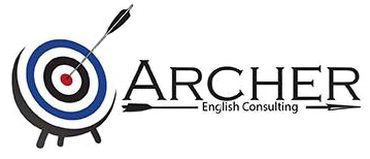Here are twenty tips based on Friday's observations:
Don't
1. Don't wait until you have been introduced to install/start your PowerPoint. You are already "on camera" at this point. Be ready to begin when everyone is looking at you.
2. Don't make excuses or apologize at the beginning of your presentation. It sets a negative tone.
3. Don't leave out the hook (the benefit of your content to the audience) in your introduction or save it until the end when it's too late to catch the audience's attention.
4. Don't voice your pauses. The audience will wait. Ummms and errrrs show audience that you are pausing. Pause with thoughtful confidence.
5. Don't make quick, jerky movements. Move smoothly and with a purpose. Slow down.
6. Stand or walk in front of the screen. You want to be "in the spotlight", not in the projector light.
Do
7. Bring energy and enthusiasm to your presentation. Turn your nervous energy into a powerful opening.
8. Make your introductions as efficient as possible. Time is money. Don't waste too much time before getting started on your topic talking about unrelated things.
9. Angle your body to face the audience even if the podium doesn't face them directly.
10. Familiarize yourself with the technology in the room. Know how to use remote controls, light switches, thermostats, projector and screen controls, etc. before your presentation begins.
11. Decide whether you will need to use a microphone in advance and make sure you speak directly into the microphone at all times if you are using one.
12. Explain technical words and abbreviations if you are speaking to a general audience. You might not be able to use your first language (ex. Korean) with audiences at international conferences so prepare in advance how to explain these terms as simply as possible using English.
13. Consider using handouts in place of wordy slides. Handouts are easier to read and can be useful after the conference is over. Also, be sure to make more than enough copies.
14. Turn down the lights in the front of the room to make it easier for audience members to read your slides (especially those with smaller font sizes).
15. Give a hat tip to presenters from earlier sessions who had a topic similar to yours. Recognize the similarity and briefly explain how you presentation will be different.
16. Conclude with an action step or reminder of the takeaway you want the audience to leave with.
17. Be sure you have a conclusion/contact information slide so you don't accidentally go to the black PowerPoint ending screen.
18. Predict what kinds of questions audience members might ask. One of the most common question types is "Why did you X, and not Y?".
19. Have a plan for how to avoid answering questions that are off topic or too specific for one audience member. Offer to speak with them personally after the presentation or send them an email. Stay in control.
20. Finish a little early instead of a little late. The audience will appreciate you for it.
Many of the areas for improvement that I noticed in Friday's workshop were the same ones that I observed while teaching presentation skills to university students. Presentation skills are similar to athletic or musical skills in that theory can be helpful but practice is needed to see real improvement.
If your school or organization would like to schedule a workshop to improve participants' presentation skills, please contact me at [email protected].

 RSS Feed
RSS Feed